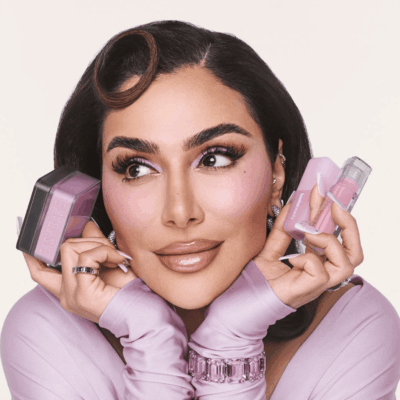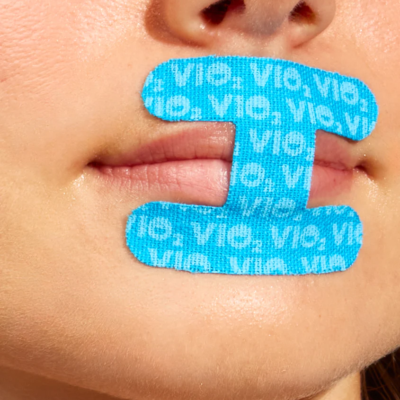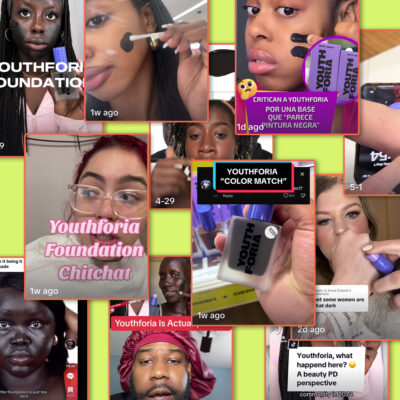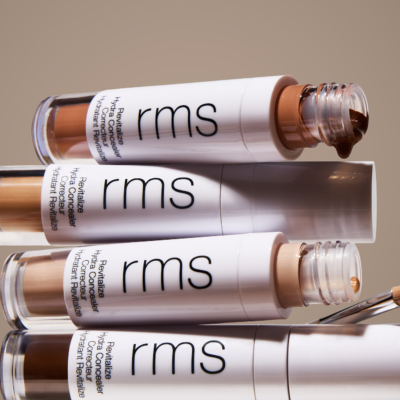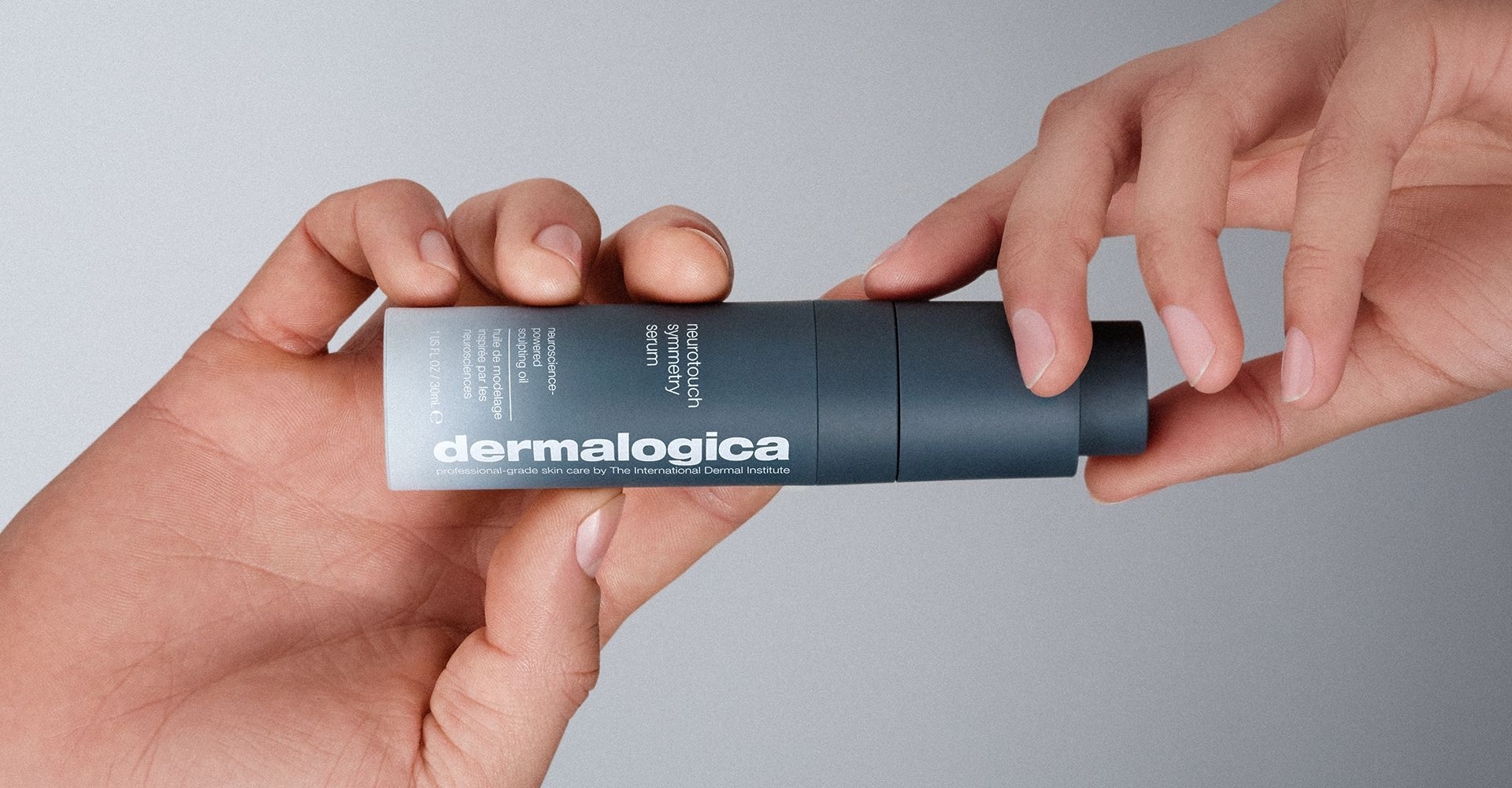
Dermalogica Ventures Into Neurocosmetics With Serum-Massage System
Dermalogica is launching a neuroscience-powered sculpting oil created to pair with a massage technique designed by skin therapists and neuroscience experts to stimulate the mind-body connection.
The oil, NeuroTouch Symmetry Serum, will be available in retail exclusively at Ulta Beauty. Priced at $138 for a 1-oz. size, it contains bacillus ferment, winged kelp, rosewood extract and squalane. Along with Ulta, the biomimetic product will be sold at select beauty service providers carrying Dermalogica that offer the aligned 10-minute NeuroTouch treatment. The treatment is intended to boost circulation and relieve tension as well as foster the mind-body connection, as an add-on service. The Unilever-owned company has a presence at 5,000 service providers nationwide.
Founder Jane Wurwand has dreamed of introducing a service like NeuroTouch to couple with a product since she launched Dermalogica in 1986. She says, “We are omnichannel, but our core, our North Star, is still our professional skin therapist. What do they need in their hands by way of a product, and what do they need in their hands by way of technique?”
Wurwand’s vision for the NeuroTouch system combining the serum and massage technique stems from her belief in the interconnectedness of mental and physical well-being. “The skin is an emotional organ,” she says. “If I say something that’s embarrassing to somebody, the skin will flush with blood. So, we know that the skin actually will respond to even a thought. I could give you a dozen examples of how the skin responds to something that’s happening in the mind. I wanted to start to have this conversation around the mind and the body and how technique can really help you.”
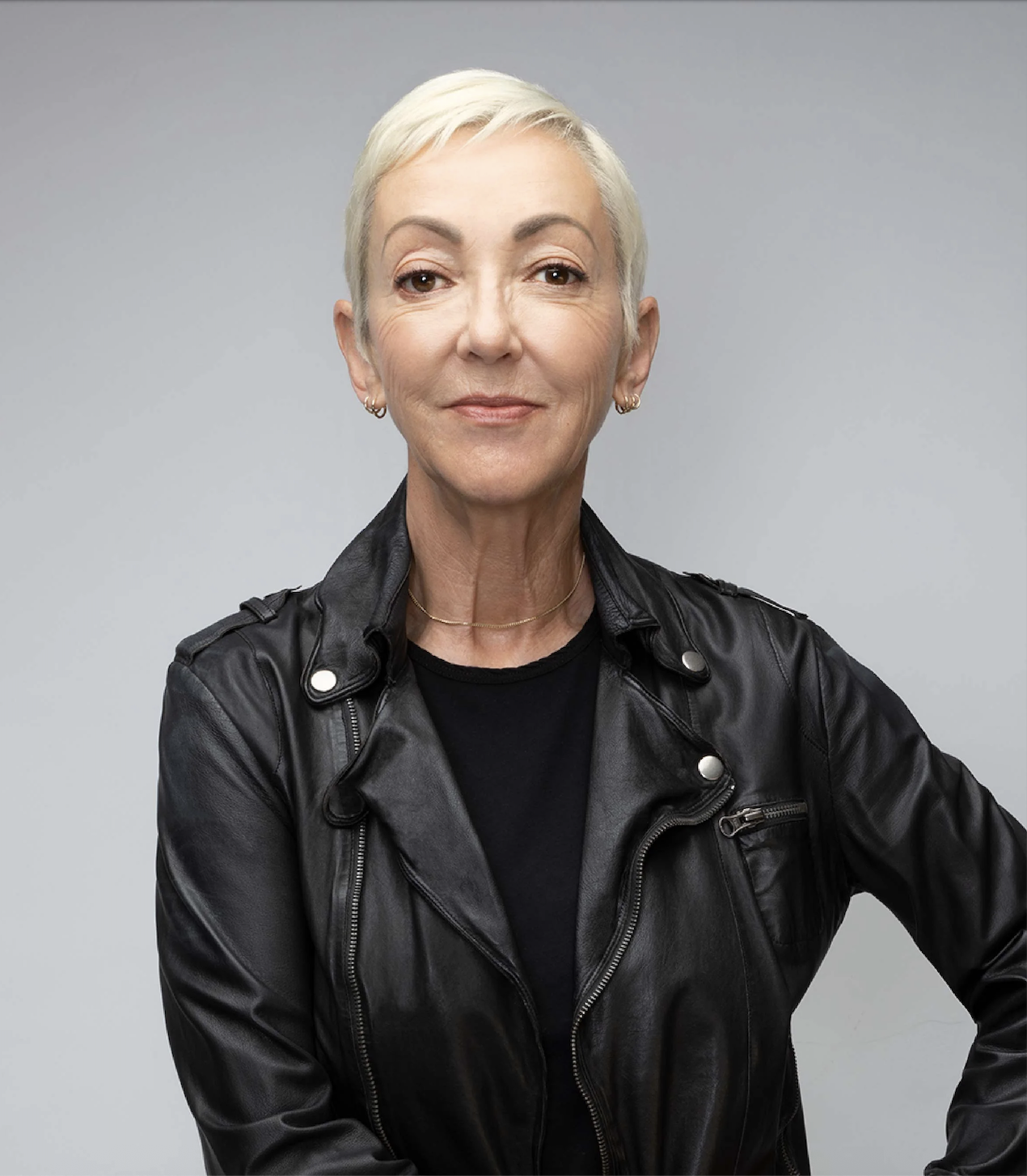
Wurwand wanted the massage to be playful, easy for people to perform and effective. Dermalogica worked with UCLA’s neuroscience and psychiatry departments and the university’s East West Center for Integrative Medicine to develop the NeuroTouch system. The brand describes the system as “the next generation of facial balancing.” Its six-step manual massage technique includes pinching movements on the neck and lifting and circling the skin on the jaw, cheeks, brows and forehead with fingers.
Wurwand says, “It’s used with the product in a way that helps to restore not just the well-being and the repair barrier function of the skin, but also because of the pressure and the working on the muscles, the symmetry of the face.”
Dermalogica has validated the product-cum-treatment in clinical testing. In an independent 8-week study with 31 participants who applied the product twice daily, 95% of users felt more present with their romantic partner after incorporating the NeuroTouch sculpting technique into their routine, 100% of people who used the serum with a partner said it was fun and made them laugh, and 93% of partners said it helped them de-stress. After four weeks of applying the serum twice daily, 90% of users experienced more symmetrical, lifted and sculpted skin.
Noting that NeuroTouch Symmetry Serum works best in a nighttime regimen, Wurwand emphasizes its ingredient deck was carefully crafted for sensorial goals and to amplify skin quality. “Bacillus ferment, which is making sure that the skin is pliable and malleable, is helping restore the skin barrier. We’re using essential oils because we don’t use any fragrance, color or any petroleum byproducts. We’re using peptides and proteins, and we’re working with exosomes,” she says. “If somebody just wants a new serum, they will love it.”
NeuroTouch is a prime example of the burgeoning neurocosmetics space featuring beauty products that aim to support consumers’ spirits and their skin. Wurwand reasons the space is gaining prominence because of the incorporation of what was previously considered healthcare into the beauty treatment arena. “None of this can be separated into these neat boxes of that’s food, that’s exercise, that’s beauty,” she says. “It’s no longer neat like that because we know too much about the body, and we’re learning more every day.”
In the first half of the year, Unilever reported that its prestige beauty business was flat due to softness in the United States, the company’s biggest market. Dermalogica sits in its prestige beauty and wellness division, and its sales declined in the period. Last year, Unilever described Dermalogica as the No. 1 professional skincare brand globally and classified it as among the company’s 30 largest brands representing 75% of its turnover.

